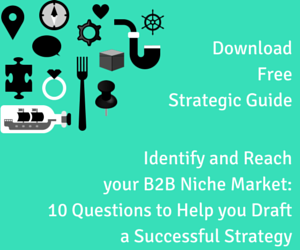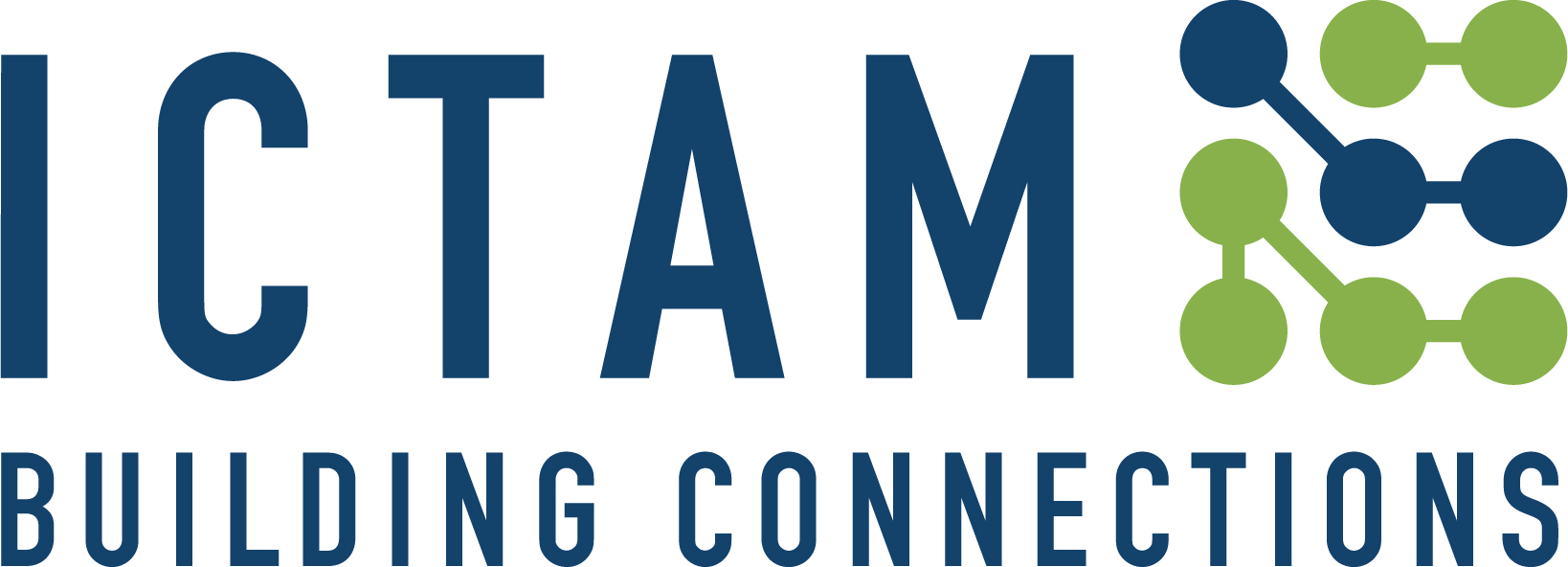You know your market. Your offering is unique and solid. You spent time in Research and Development (R&D), devoted time to optimizing your product/service, strengthened the connection with your clients and, over time, built your business. So how do you capitalize on all of your well-done work and expertise to become a trusted authority? How can you use your expertise to become recognized as an expert and grow your business?
When you’ve identified and communicated a strong competitive advantage to a very specific audience, you put yourself in a great position to provide your clients with something unique. The more specialized your offer, the scarcer it is. Clients requiring specific solutions value the knowledge of experts, which puts them in a great position to compete and win – especially at a global level.
So, how can you leverage your expertise to become the expert in your area? When few companies can boast they are experts in your specific B2B niche, it becomes an opportunity.
B2B Niches Expect Teaching Rather than Traditional Selling
A component of today’s success is embracing teaching rather than selling. Only you know best how to help your clients, you deeply know your field. Your knowledge is valuable and others appreciate it. Your clients also learn from you. Being generous and sharing your knowledge allows your potential clients the opportunity to learn from you. This also allows them to understand how much you know your art.
So how do you do that? By showing the market that you’re the best at what you do.
There are many ways to demonstrate your knowledge and many tools you can use to strengthen your point, like articles, infographics, diagrams, white papers, podcasts, and videos, just to name a few. You prove yourself the expert when you create content, share knowledge and promote your expertise. You don’t just say that you are the expert: you prove it.
No need for sharing any of your trade secrets! Sharing your knowledge doesn’t mean disclosing trade secrets, but simply that you are in a position to teach others best practices and key concepts to consider when looking for answers. You are the expert and the industry leader.
With respect to competitors who are eager to know more about your business, understand that you will have competition. They can copy you; but it will take them time to understand what and where you are at and by the time they get there, you’ll be further ahead of them! If you take the strategic teaching approach and are smart enough to execute it, your competitors will need time to (1) conceptualize what you are doing, (2) clearly define their own strategy, and (3) maneuver along the learning curve. Additionally, when you target a specific B2B niche, there is less of a chance that your competition will be interested in dedicating a significant effort in going after the same market segment. In the meantime, your name is out in the industry and you are earning more business.
When industrial manufacturing, technology, and scientific companies focus on targeted niche markets, they discover a number of advantages like: (1) dominance of specific niche markets, (2) the ability to become an expert, go-to specialist, and (3) niche markets are less sensitive to pricing.
Want to learn more? Check out our free, strategic guide, “Identify and Reach Your B2B Niche Market”.
The New Buying Cycle
As a result of personal preferences as well as the steps on the buying stages, different people consume information in different formats. Some prefer short articles while others prefer long ones. Some prefer videos while others prefer visual graphics.
Because of personal preferences, and also because different formats and level of depth are required by different people depending on where they are in the buying process. People who browse to learn basic information and figure out further moves; for them, you need introductory, overview-type information. On the other hand, third party validation may be required for people who need more detailed information to define the best fit for their needs.
Curating and repurposing content is very important in the new sales process. The article written for a trade publication can quickly turn into a blog post, be presented as a video or infographic expanded into a podcast, white paper, webinar, or any number of social media posts. This increases the number of times you “touch” a particular individual; thus providing them with multiple opportunities to hear about the work you do.
Prove It
Third party validation is one of the best ways to prove that the industry recognizes you as an expert. Client testimonials show that your statements are genuine, just be sure to include the last name, a real company and a link to the company’s website. Also, be sure to produce case studies of real clients from the micro-segment where you want to be considered an expert. These pieces should document that the clients were satisfied with the work they received from your company. You can also prove your expertise by writing articles in both long and short formats, publishing data, being present in the media, speaking at industry events, hosting educational webinars, publishing a book and relying on word-of-mouth. Be sure that each of these methods provides a value. Your client potential will consider you an expert so long as, and only if, they can learn something valuable from you. Sharing valid and crucial information allows you to both be the expert and be recognized as it.
It’s important that you present and share your highly-valuable content with the market, rather than simply publish it on your website, waiting for prospects to find you. The shared content and third-party validations support your recognition and enhance your sales, which open new doors for your business.
A team of sales representatives can talk the talk, but the market will ask them to walk the walk – they’ll want proof. Data and validations from those clients who have used your company in the past and been satisfied with the services they received, will provide the proof prospects will ask for before they even consider your solution.
An Itchy Point: Who is in Charge of Your Reputation?
Scientists, engineers and technologically-savvy professionals who manage a business – beware! You don’t entrust the design of the star company product to your junior engineer; therefore you shouldn’t build your reputation as an expert and entrust your credibility to the hands of your nephew in the undergraduate program, the next-door neighbor, the summer intern or your wife. Just as resources and proper strategic planning are allocated to develop products and services to build your business, you must also demonstrate that same level of professionalism when planning and implementing a high-level strategy for building your reputation. You must carefully plan and execute the high-value content your company needs to create in order to position you as the expert.
While it’s acceptable for an entry-level professional to write and distribute your press release, create impressive information for your website and be in charge of your new market penetration strategy; it’s most unlikely that you will achieve the necessary amazing results without some degree of seniority being required. A seasoned professional with accountability is required when developing a strategy or when implementing a cohesive plan with multiple moving parts.
Without the right expert in charge of the job, it’ll be difficult for you to achieve great results. So don’t be so fast to blaming Marketing unless you can show that your dedication to Marketing was the same as your dedication to R&D! Be honest with yourself – how much of an effort did you invest towards R&D and how much towards Marketing?
Final thought
You can position your business as a trusted authority when you know how to solve very specific types of challenges for a select group of clients. Do you want to get there? Then you need to plan, share your expertise and STAND OUT!
When industrial manufacturing, technology, and scientific companies focus on specific, targeted niche markets, they discover several advantages:
- Companies can dominate specific niche markets;
- Companies can become experts and “go-to” specialists; and,
- Niche markets are less sensitive to pricing.
Want to learn more? Then check out our free strategic guide: “Identify and Reach Your B2B Niche Market”.






